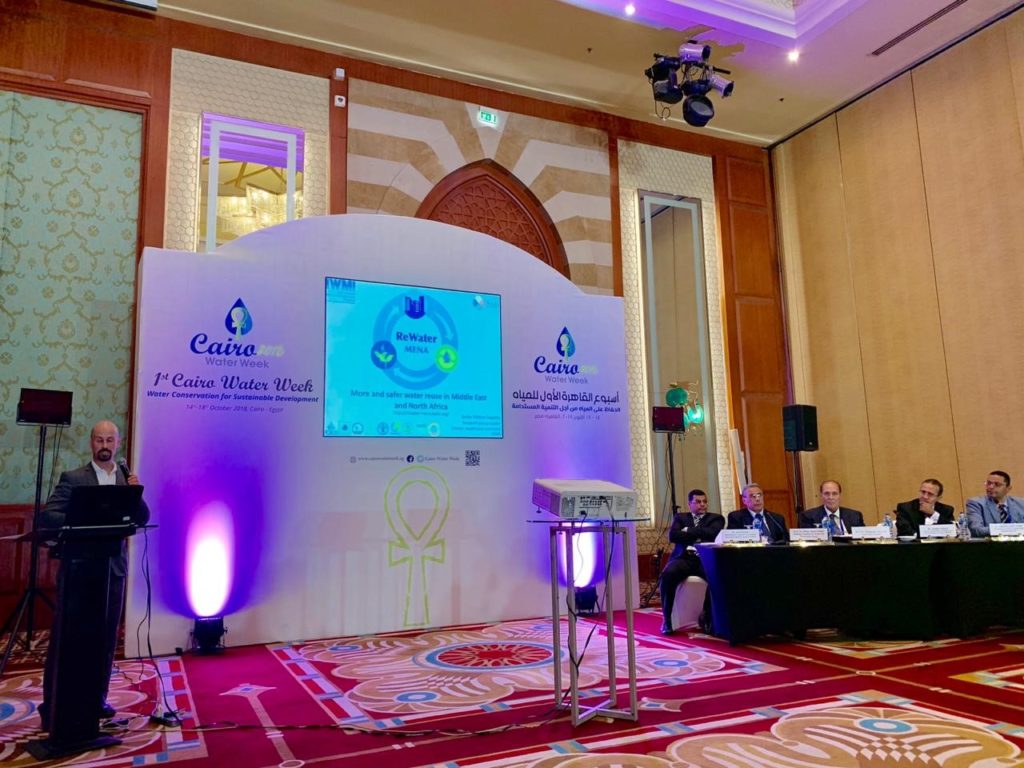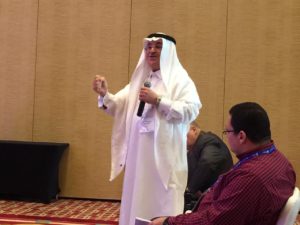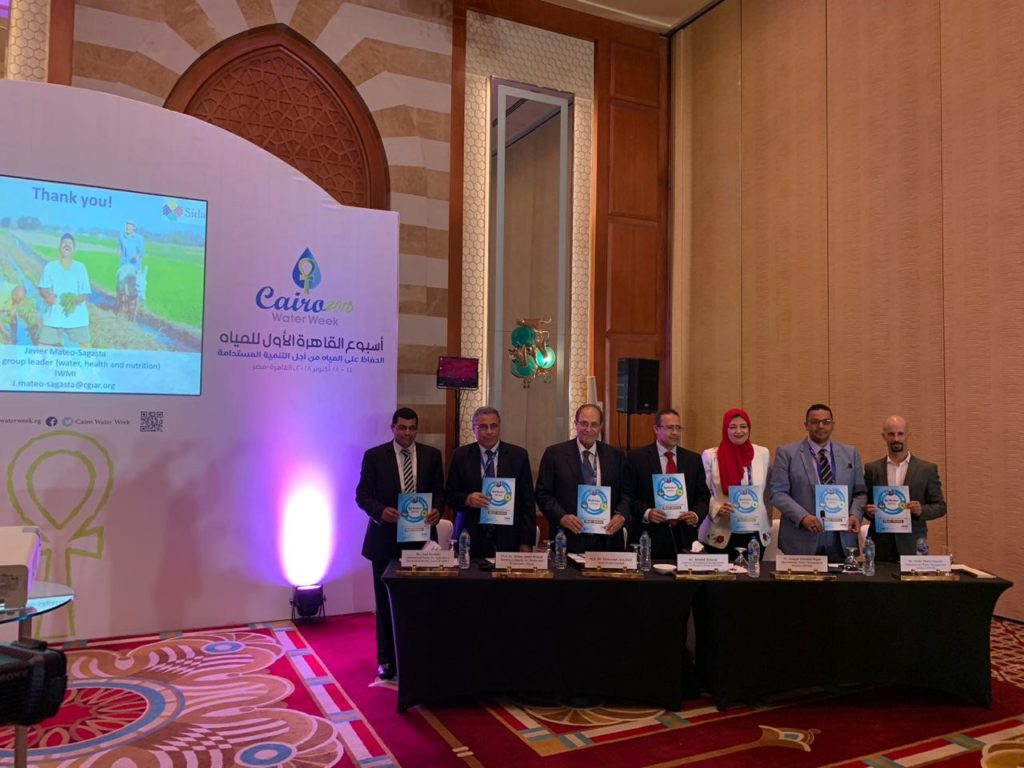IWMI launches ReWater MENA at Cairo Water Week

To promote the safe reuse of treated wastewater in the Middle East and North Africa, the International Water Management Institute (IWMI) and its partners have launched ReWater MENA, a 4-year regional project with specific activities in Egypt, Jordan and Lebanon. Drawing on experience with existing water reuse strategies in the region, the project will identify promising innovations and validated models to address management bottlenecks that constrain water reuse.
On October 17, 2018, ReWater MENA was inaugurated at Cairo Water Week. Dr. Amgad El Mahdi, head of IWMI’s MENA office, chaired the session and Javier Mateo-Sagasta, IWMI research group leader, described the many benefits of water reuse and ways in which the project will tackle barriers to reuse in the region. The rest of the session focused on the links of water reuse to policy and governance.
Dr. Yasser Sherif, Environics Managing Director, then moderated a discussion with the following panellists:
- HE Dr. Mahmoud Abu Zeid, President of Arab Water Council and Former Minister of Water Resources and Irrigation
- Rifaat Abdel Wahaab, Research and Development Sector Head, Holding Company for Water and Waste Water (HCWWW)
- Khaled Abu Zeid, Regional Water Resources Director, Centre for Environment and Development for the Arab Region and Europe
- Atef Sweilam, Water Management Specialist, International Center for Agriculture Research in the Dry Areas
Discussions with key project partners focused on the institutional challenges and opportunities for implementing comprehensive and effective water reuse policies in Egypt.

It is estimated that 7.6 billion m3 of wastewater is produced and 3.8 billion m3 of wastewater is treated in Egypt each year. Currently, only a tiny fraction of treated water is reused, most of which goes toward irrigating trees. Nevertheless, “The new Egyptian code for reuse now allows for the cultivation of industrial crops and some edible crops that are not eaten raw, taking into consideration the required safety measures,” says Dr. Refaat Abdel Wahab. Because the new code is more flexible than the old code, which did not account for the value of wastewater, the HCWW aims to encourage investors to invest in reuse projects.
“There is a necessity to make water reuse more explicit in the new water law,” says Dr. Khaled Abu Zeid. “The law should recognize that wastewater is the only increasing renewable water resource in the future”.
Dr. Abu Zeid proposed a number of policy recommendations for more and safer reuse, including a dedicated government plan for the use of treated wastewater, revision of irrigation policies to encourage reuse, incentives that make water reuse attractive to investors and the facilitation of water exchange between sectors. This would enable agriculture to generate freshwater for urban uses and cities to generate nutrient-rich recycled water for agricultural uses.
“Since wastewater cuts across various sectors and ministries, such as the environment, irrigation, health and housing, a dialogue between all stakeholders must be initiated,” says HE Mahmoud Abu Zeid. In Egypt, there is not a designated institution responsible for wastewater management, which speaks to the importance of ReWater MENA’s role in bringing stakeholders together for policy dialogues. The project will create National and Regional Learning Alliances to disseminate information about wastewater, increase awareness of its benefits and co-create solutions for improving the current state of reuse.

